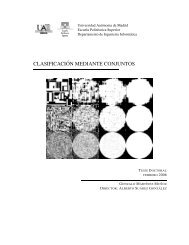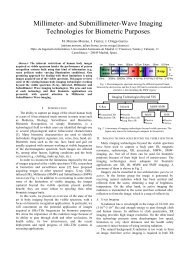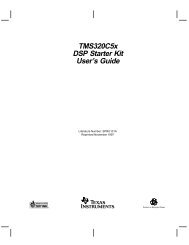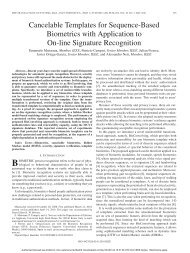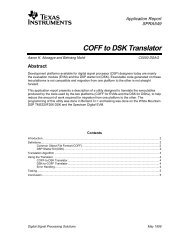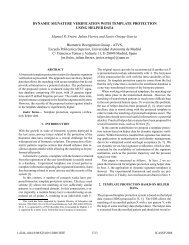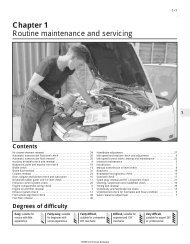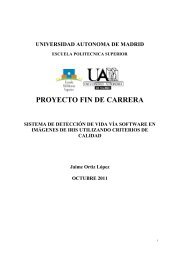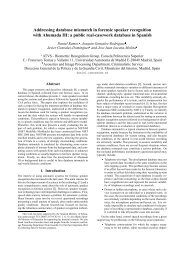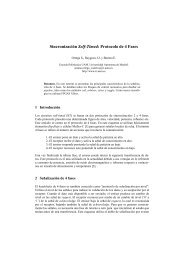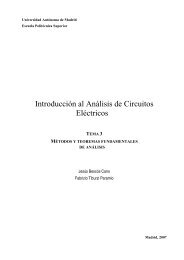You also want an ePaper? Increase the reach of your titles
YUMPU automatically turns print PDFs into web optimized ePapers that Google loves.
29}}tail = tail->next;}return(dummy.next);SortedMerge() Using Local ReferencesThis solution is structurally very similar to the above, but it avoids using a dummy node.Instead, it maintains a struct node** pointer, lastPtrRef, that always points to the lastpointer of the result list. This solves the same case that the dummy node did — dealingwith the result list when it is empty. If you are trying to build up a list at its tail, eitherthey dummy node or the struct node** "reference" strategies can be used (see Section 1for details).struct node* SortedMerge2(struct node* a, struct node* b) {struct node* result = NULL;struct node** lastPtrRef = &result; // point to the last result pointerwhile (1) {if (a==NULL) {*lastPtrRef = b;break;}else if (b==NULL) {*lastPtrRef = a;break;}if (a->data data) {MoveNode(lastPtrRef, &a);}else {MoveNode(lastPtrRef, &b);}lastPtrRef = &((*lastPtrRef)->next);// tricky: advance to point to// the next ".next" field}}return(result);SortedMerge() Using RecursionMerge() is one of those problems where the recursive solution has fewer weird cases thanthe iterative solution. You probably wouldn't want to use the recursive version forproduction code however, because it will use stack space which is proportional the lengthof the lists.struct node* SortedMerge3(struct node* a, struct node* b) {struct node* result = NULL;// Base casesif (a==NULL) return(b);else if (b==NULL) return(a);// Pick either a or b, and recur



